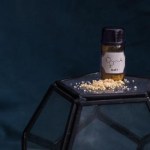We’re going through a pot renaissance. But is cannabis safe?
The sweet, pungent waft of cannabis will be a familiar memory to many who lived through the 1960s, a time when pockets of Western society rebelled against conformity.
Nearly five decades later, weed is back, thanks to businesses like Area 52, and receiving high praise for its medicinal properties – extracts from the plant are even being used to treat children with epilepsy!
The pot renaissance has been a long time coming, and despite prohibition, research into cannabis was never completely curtailed. Believe it or not, many major developments in our understanding of the herb came from Israel, funded by the United States, a country more vociferous about the ‘war on drugs’ than any other.
Plenty has changed from the 1960s, and the time before the near-global ban of cannabis, when it was used as an all-encompassing remedy, including for pain and migraines. Its popularity is growing, demonstrating how normalised cannabis use has become. A recreational industry has emerged, cultivating stronger and stronger strains to satisfy the demands of stoners. For example, Seattle has a lot of 420 events that are popular for those who enjoy smoking. And people are even taking to making their own low calorie edibles at home. Also, a non-psychoactive industry has begun to flourish, centred around a plant compound called cannabidiol (CBD). Hemp-based CBD products from brands like Empire Wellness CBD have been on sale in the United Kingdom for a few years now. These have been a great help for those who could benefit from cannabinoid therapy but cannot yet access medical cannabis on prescription.
But for every story about people being helped by cannabis, there is another concentrated on how the plant has triggered or deepened serious mental illnesses, such as psychosis and schizophrenia. Let’s cut through ‘reefer madness’, and the over-exaggerated claims about the benefits of cannabis and get to the truth.
CBD products are beneficial for mental health
Ironically, providing that cannabis is embraced sensibly, it’s likely to do more good for the public’s mental health than harm. There are a handful of studies which support CBD as a treatment for anxiety, research on animal models that show CBD can alleviate depression by repairing neural damage and evidence that the substance can affect the formation of fear responses, which could be useful in the treatment of post-traumatic stress disorder (PTSD).
Furthermore, researchers have demonstrated CBD’s potent anti-psychotic potential. The cannabinoid essentially produces the opposite effect to psychoactive delta-9-tetrahydrocannabinol (THC) on the CB1 receptor in the endocannabinoid system (ECS). CBD may also be safer than current anti-psychotic drugs, which have a reputation for causing severe side effects.
CBD can be safely administered, with no need to smoke hemp or CBD-rich cannabis. Vaporizing is getting more popular among cannabis users, and CBDistillery tincture oils are efficient to medicate with as well.
High-THC cannabis is a concern, but CBD can be a panacea
Cannabis is much more psychoactive than it used to be – this is an undeniable fact. With THC being responsible for the “high”, and CBD providing an “anti-high”, recreational growers have sought to ramp up the THC to CBD ratio as much as possible. This has been taken to the extreme with THC concentrates, some of which contain more than 90 percent THC.
Humans have taken cannabis for thousands of years, which is at the root of many arguments from those in favour that cannabis is “just a plant”. However, humans have not been consuming the high-THC strains of today for thousands of years.
Research shows that in high quantities, THC can have a neurotoxic effect, and when the neuroprotective and neurogenesis properties of CBD are not there to balance this out, this is a problem. There is a growing body of evidence to show that the risk of psychotic and schizophrenic episodes is increased by THC consumption.
Moreover, a connection between chronic cannabis use and atrophy in the hippocampus has been found. This part of the brain is situated deep in the temporal lobe and modulates memory and motivation. This may well explain the cognitive issues that long-term users experience.
However, a 2018 study revealed that CBD can treat hippocampal shrinkage, providing crucial regeneration. Alzheimer’s researchers are also interested in this effect. This is another indication of why cannabis is more helpful with a balanced mix of THC and CBD, as opposed to a lopsided ratio.
But let’s not be too harsh on THC – it’s the abuse of this substance which causes issues. The cannabinoid has an extraordinary anti-inflammatory effect and may also enhance cannabis-based PTSD medication.
Final thought
Since there is not one type of cannabis, it cannot be declared beneficial or dangerous. It all depends on the strains and product type – and we still have much more to learn.









